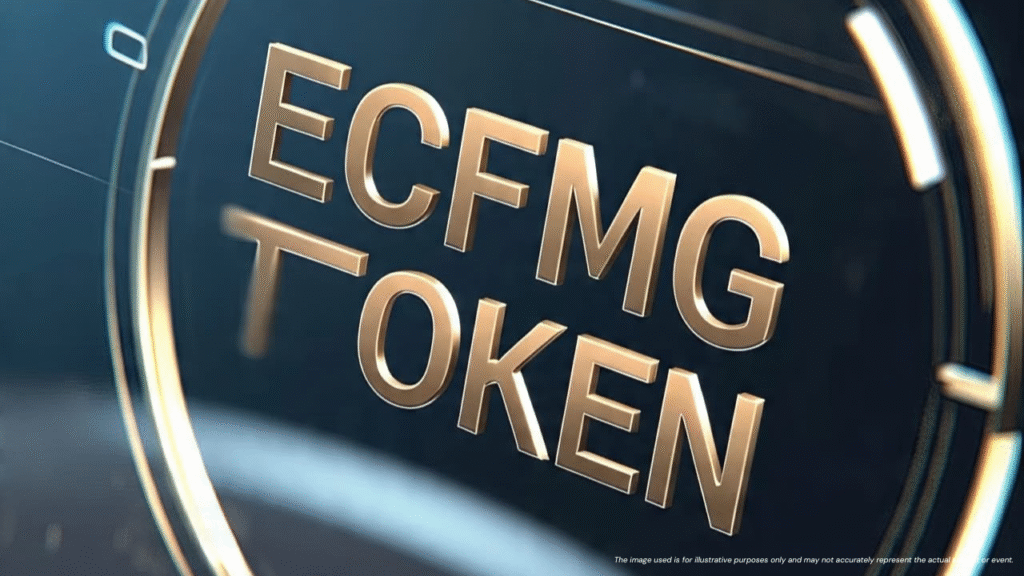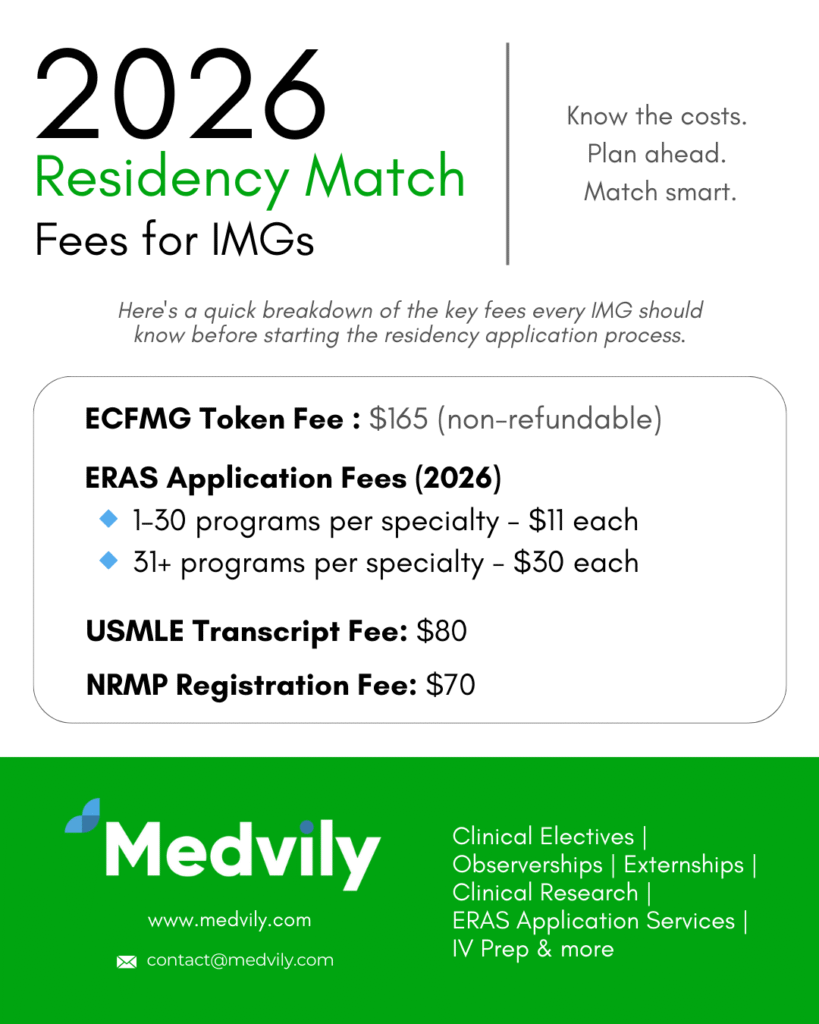Learn everything about Residency Match 2026 fees, including ERAS application costs, ECFMG token fee, NRMP registration, and budget tips for IMGs.
Table of Contents
For international medical graduates (IMGs), the path to securing a residency in the United States is both exciting and challenging. One of the most important factors to consider early in this journey is the Residency Match 2026 fees. Understanding all the associated costs—including the ERAS application fees, ECFMG token fee, NRMP registration fee, and more—will help you budget effectively and avoid surprises.
This comprehensive guide breaks down all the critical fees you need to know for the 2026 Match cycle, so you can plan smarter and apply with confidence.
What Are Residency Match 2026 Fees?
The Residency Match 2026 fees refer to the various costs applicants, especially IMGs, must pay during the residency application process. These fees cover everything from gaining access to the ERAS application system to submitting your program preferences to the National Resident Matching Program (NRMP).
Budgeting for these fees upfront is essential for a smooth application experience.

1. ECFMG Token Fee for Residency Match 2026
As an IMG, your first step is to obtain an ECFMG ERAS token, which grants you access to the MyERAS application portal.
- Cost: $165 (non-refundable)
- Where to Get It: ECFMG OASIS platform (oasis.ecfmg.org)
- Availability: Tokens typically become available in late June before the Match cycle year
This fee is mandatory for IMGs and cannot be refunded once purchased, so double-check your eligibility before applying.
2. ERAS Application Fees Breakdown for 2026
The Association of American Medical Colleges (AAMC) introduced a simplified fee structure starting with the 2025 Match, which continues for 2026. This update benefits applicants by making fees more transparent and easier to calculate.
- 1 to 30 programs per specialty: $11 each
- 31 or more programs per specialty: $30 each
The fees reset for each specialty applied to, so applying to multiple specialties means separate fee counts for each.
Example:
Applying to 30 Internal Medicine programs and 30 Pediatrics programs will cost:
30 × $11 = $330 (Internal Medicine)
30 × $11 = $330 (Pediatrics)
Total = $660
This new structure allows applicants to plan their budget strategically and avoid unnecessary expenses.

3. USMLE Transcript Fee
When submitting your ERAS application, you must request that your USMLE transcript be sent to residency programs.
- Fee: $80 (flat fee regardless of number of programs)
- Payment: Paid through MyERAS during application submission
Make sure your USMLE scores are finalized before the application deadline to avoid delays.
4. NRMP Registration Fee
To participate in the Match, all applicants must register with the National Resident Matching Program (NRMP).
- Cost: $70 (includes up to 20 ranked programs)
- Additional Fees: $30 for each additional set of 10 programs ranked
- Registration Website: nrmp.org
Register early to avoid late fees, and plan your rank order list carefully.
5. Additional ECFMG Certification & Credentialing Fees
IMGs often face additional costs related to ECFMG certification, including credential verification, document translation, notarization, and authentication. These fees vary depending on individual circumstances but generally add several hundred dollars to your total expenses.

6. Travel & Interview Expenses
While many programs still offer virtual interviews, in-person interviews are becoming more common again. Budget for potential travel costs such as flights, hotels, local transport, meals, and professional attire.
Depending on the number of interviews and their locations, this can add $500 to $5,000 or more to your overall costs.
Budgeting Tips for Residency Match 2026 Fees
- Track your expenses: Use a spreadsheet to monitor all fees and deadlines.
- Apply strategically: Focus on programs that align with your profile to avoid unnecessary fees.
- Limit multiple specialties: While it can increase chances, applying broadly across specialties increases your costs substantially.
- Start early: Secure your ECFMG token and apply for fee assistance early.
Final Thoughts
Understanding the Residency Match 2026 fees is a vital step toward a successful residency application. The updated ERAS fee structure simplifies budgeting and helps you make informed decisions. Don’t overlook other fees like the ECFMG token, USMLE transcript, and NRMP registration fees, as they contribute to the overall cost.
For the most accurate and updated information, always refer to these authoritative sources:
By planning ahead and budgeting wisely, you can reduce financial stress and focus on presenting the best version of yourself to residency programs. Good luck with your 2026 Match journey!
Ready to Apply? Let Medvily Guide You!
Medvily offers a complete suite of services including:
- Clinical Electives
- Observerships & Externships
- Clinical Research
- Residency Application Support
- Mock Interviews & IV Prep
📩 Email: contact@medvily.com
🌐 Website: www.medvily.com



